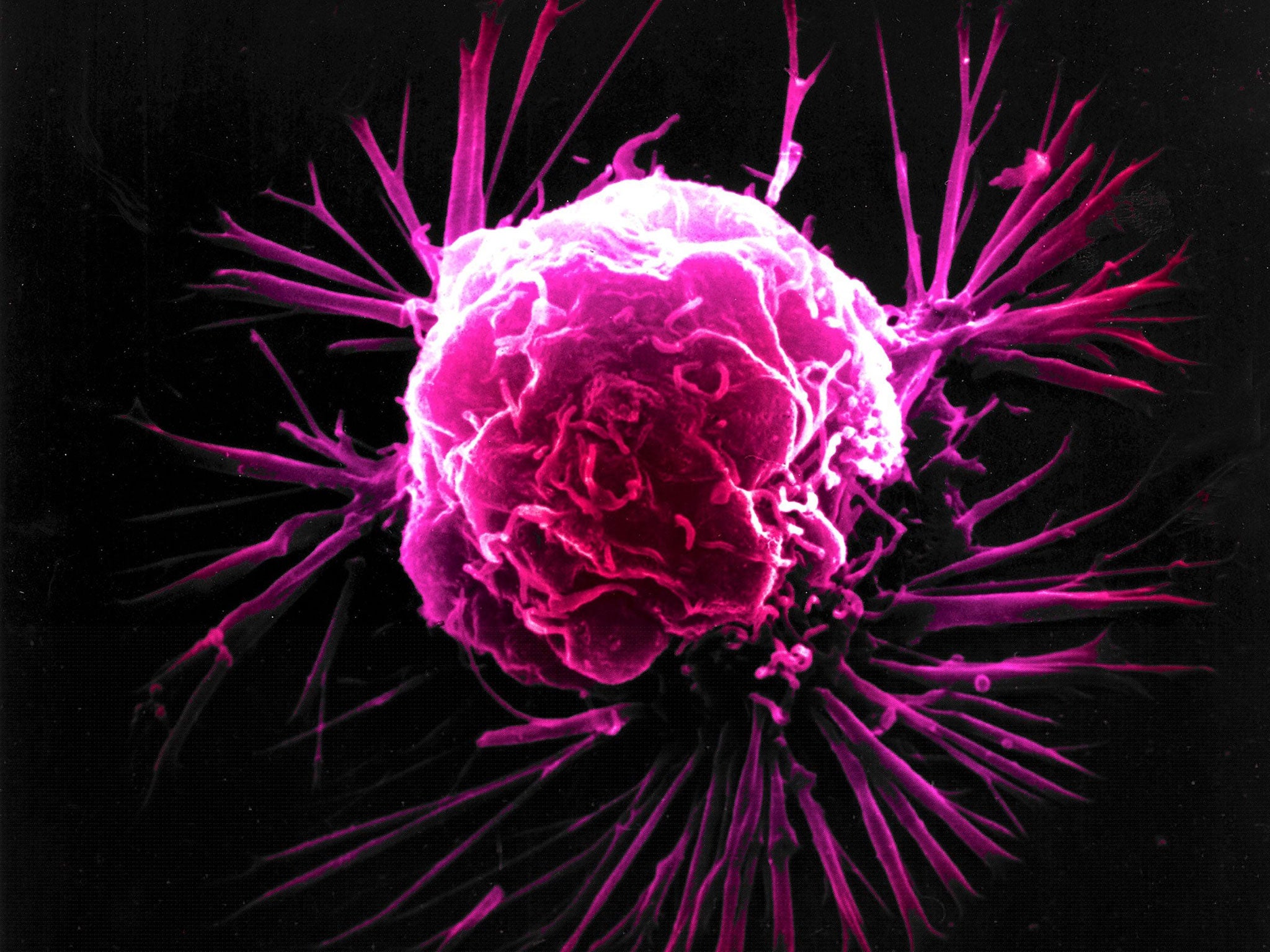Charity warns: Half of Britons living in 2020 will get cancer
Four in 10 sufferers can expect to survive disease despite shock predicted rise

Your support helps us to tell the story
From reproductive rights to climate change to Big Tech, The Independent is on the ground when the story is developing. Whether it's investigating the financials of Elon Musk's pro-Trump PAC or producing our latest documentary, 'The A Word', which shines a light on the American women fighting for reproductive rights, we know how important it is to parse out the facts from the messaging.
At such a critical moment in US history, we need reporters on the ground. Your donation allows us to keep sending journalists to speak to both sides of the story.
The Independent is trusted by Americans across the entire political spectrum. And unlike many other quality news outlets, we choose not to lock Americans out of our reporting and analysis with paywalls. We believe quality journalism should be available to everyone, paid for by those who can afford it.
Your support makes all the difference.Almost half of the UK population in 2020 will get cancer in their lifetime - but four in every 10 will survive the disease, the country's leading cancer charity has said.
The startling prediction from Macmillan Cancer Support came with a warning that, despite better survival rates, caring for cancer sufferers and survivors poses a “herculean challenge” for society and the NHS over the coming decades.
Macmillan's estimate is the first to take into account the UK's ageing population as well as ever-improving chances of surviving cancer.
The proportion of people who will get cancer at some stage in their life has increased by more than a third over the past 20 years, the charity said, and if current trends continue that number will rise to 47 per cent of the population in just seven years' time.
As people live longer the proportion of the population getting cancer - often later in life - has increased dramatically. Better diagnosis and treatment means that more people than ever before are surviving the disease - but living with debilitating physical and emotional after-effects.
“This poses a herculean challenge for the NHS and society,” said Ciarán Devane, Macmillan's chief executive. “The NHS will not be able to cope with the huge increase in demand for cancer services without a fundamental shift towards proper after-care, without more care delivered in the community, and without engaging cancer patients in their own health. Until then, the help and support that organisations like Macmillan provide will become even more urgent to ensure no-one faces cancer alone.”
Macmillan's estimate was based on current figures for cancer incidence and mortality rates and reflects recent growth trends in both the number of people getting cancer, and the number of sufferers surviving the disease.
In 20 years the proportion of people surviving cancer has doubled from only one in five in 1992 to more than one in three today. Earlier diagnoses and continuing advances in treatment and care mean that, by 2020, four in 10 sufferers will survive.
“That we live longer as a nation, and that we are improving cancer treatment, are things to celebrate,” said Macmillan's chief medical officer, Professor Jane Maher. “We do, however, need to add a serious note of caution: the more successful we are with treatment and cure, the more people we have living with the long-term effects of cancer and its treatment. Many patients can be left with physical health and emotional problems long after treatment has ended.”
Cancers were responsible for 157,000 deaths in the UK in 2010.
NHS England's national clinical director for cancer, Sean Duffy, said that NHS reforms were taking into account increasing demands for cancer care.
“The Department of Health has set the NHS the challenge of saving an additional 5,000 lives a year by 2014-15 and we remain committed to working to achieve this,” he said. “We also recognise that local NHS teams need to consider providing a new range of care services for cancer survivors to tackle their needs and improve their quality of life. Through our strategic clinical networks for cancer, we aim to share best practice and develop clinical pathways that help deliver better outcomes for patients.”
Join our commenting forum
Join thought-provoking conversations, follow other Independent readers and see their replies
Comments